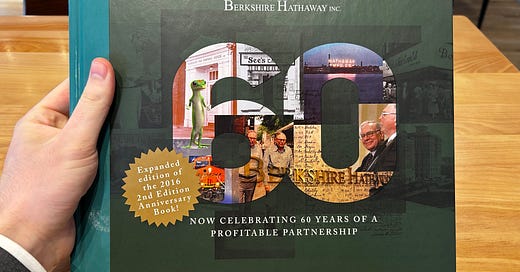
What teaching English in Hong Kong taught me about habits and reputation
Working as a teacher abroad showed me how closely related habits and reputation are, even for four-year-olds.
When I taught English to four-year-olds in Hong Kong in 2018, I would encourage my students as best I could.
The preschoolers, who called me “Mr. Pill,” quickly taught me just how dialed in they were to how their behavior could elicit certain reactions.
Indeed, I praised those who did their homework. Most importantly, my response illustrated how I expected to see their completed assignments that day and everyday.
“Awesome job and no surprise here,” I’d say as I collected their homework.
I made sure they knew that, when they finished their assignments, it never surprised me.
This batch of students had a reputation for excellence. Everyone, themselves included, knew that they would simply do what they were supposed to do, and do it well.
But naturally, there were also those who rarely did their homework. It’s worth noting that given the rigor of Hong Kong’s education system, these students were the minority, but they were as strong-willed as any.
I was fairly neutral toward them in my reaction, and I tried different ways to encourage them without being negative or reprimanding.
What moved the needle most, though, was when I acted genuinely surprised on the occasions they completed their homework.
I acted like it was the most shocking thing in the world on the occasion these students would turn in homework.
They didn’t like that very much.
Commending a job well done while expressing disbelief, I learned, was a good way to encourage positive behavior.
The students cared about their reputation. It didn’t feel good for them to learn how surprising it was when they did something beyond the bare minimum.
I found that persistent encouragement wasn’t effective in facilitating positive behavior. I could lose my voice telling them to do their homework, but that seemed to spark rebelliousness more than anything.
But by conveying surprise when they did something good, as if it were an anomaly, the students became self-motivated to improve. They wanted to change their reputation for the better.
Reputations are built on good and bad habits
Teaching showed me just how much we are shaped by the expectations of others. But it also showed me how our behavior can shape those expectations just the same.
Consider the friend who’s late to everything (we all know someone). From doctor’s appointments to lunch reservations, some people just don’t show up on time.
On the rare instance they arrive early, however, others usually respond with surprise.
That reaction then reaffirms to the never-early friend who they are and what they stand for — which could ultimately cement their tendency to delay, or catalyze them to kick the habit and take themselves more seriously.
It takes time to build a reputation for anything, and it starts with setting a foundation of habits that reflect your values.
Tardiness, for example, is easy to shrug off. But over time it can tell others you don’t value their time. Being consistently late, then, means you are in the habit of not respecting others — which becomes ingrained in your reputation.
Let your actions communicate your values
Remember, the habits we build are a direct reflection of our values. The things we do everyday become who we are — and the culmination of your values and habits comprise your reputation.
People notice quickly when your actions don’t reflect your stated beliefs, or when you compromise your own values.
Some say they value their health, for example, but most people won’t believe them if they don’t exercise or if they eat a high proportion of processed food.
Others may claim they value lifelong learning, but if they never read any books that may also be hard for others to see. There are plenty who verbalize this, but then they’re somehow also the person who everyone is surprised to see reading.
Still, the connection between habits and values means you hold more sway than you may think over how people perceive you.
Let’s revisit that perpetually late friend. If they chose to begin showing up on time to every single appointment, it would first surprise others, but then cement a new expectation.
In establishing a new habit, that individuals’ reputation would become one of promptness and respect.
Reverse-engineer a reputation for excellence
Use this framework to reverse-engineer the type of person you aspire to be.
If you want to be someone who others see as educated and well-read, start reading for 20 minutes a day.
If you want to be someone who others say values your health, start exercising, walking, and eating healthier.
If you want to be someone who has a reputation for being reliable, then follow through on your commitments, keep your promises to yourself and others, and don’t waffle on plans with friends.
Reputations are built one habit at a time. The way you carry yourself matters, and it’s obvious to others when your words don’t align with your actions.
Building a reputation for excellence, therefore, requires aiming to be excellent on a daily basis.









